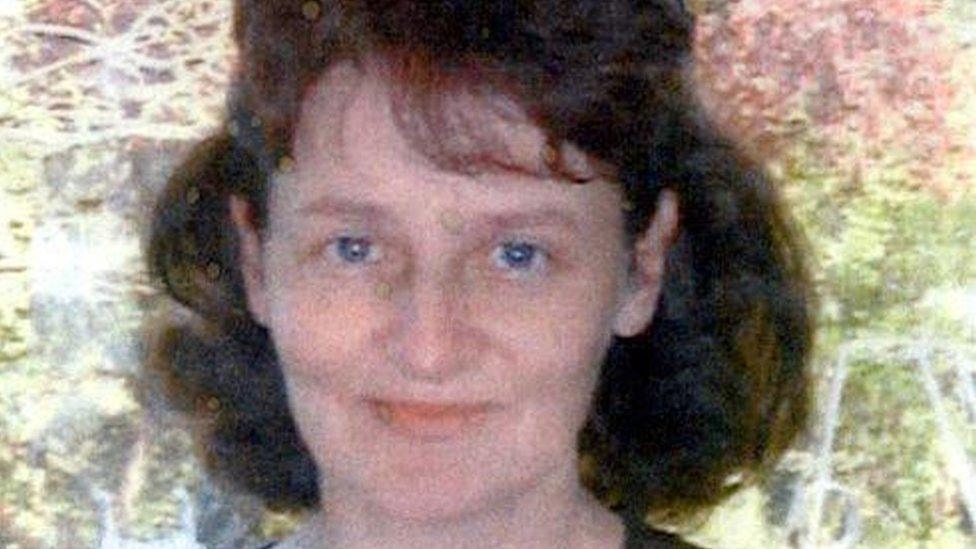Chance for Glyn Razzell to reveal what happened to missing mum
- Published
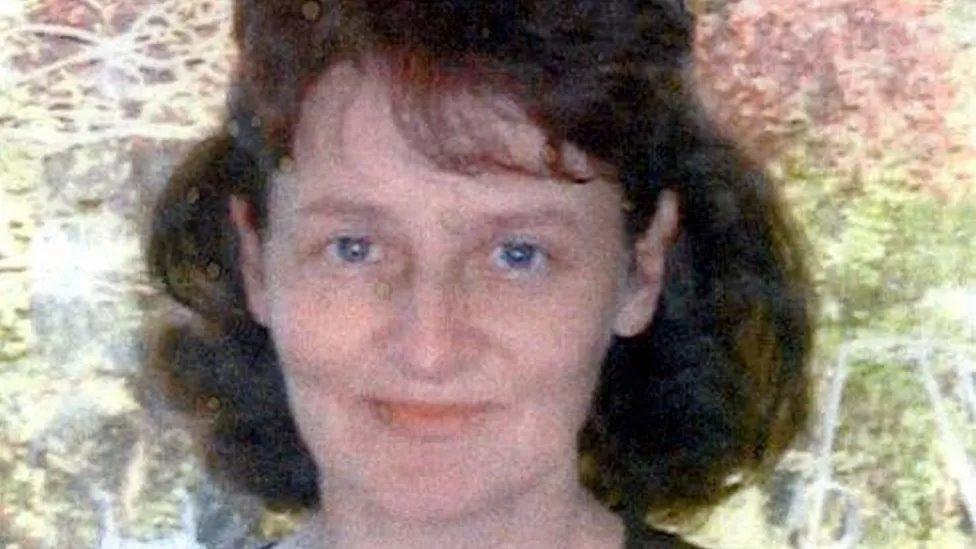
Linda Razzell, originally from Carmarthenshire, disappeared in 2002 and her body has never been found
A family who have waited more than 20 years to discover the fate of their missing mother could be about to get an answer.
Linda Razzell disappeared in 2002 while on her way to work at Swindon College in Wiltshire.
The 41-year-old mother-of-four has not been seen since, and her body has never been found.
Now her estranged husband, Glyn Razzell, who was convicted of her murder in 2003 and sentenced to life in prison, has a new chance to reveal what happened to Linda, creating the possibility he could be released.
The 63-year-old faces a public parole board hearing on Thursday to decide whether or not he can be released.
Razzell, from Somerset, was refused release from prison in October last year under Helen's Law.
The law makes it harder for killers to get parole if they refuse to reveal where they hid their victim's body.
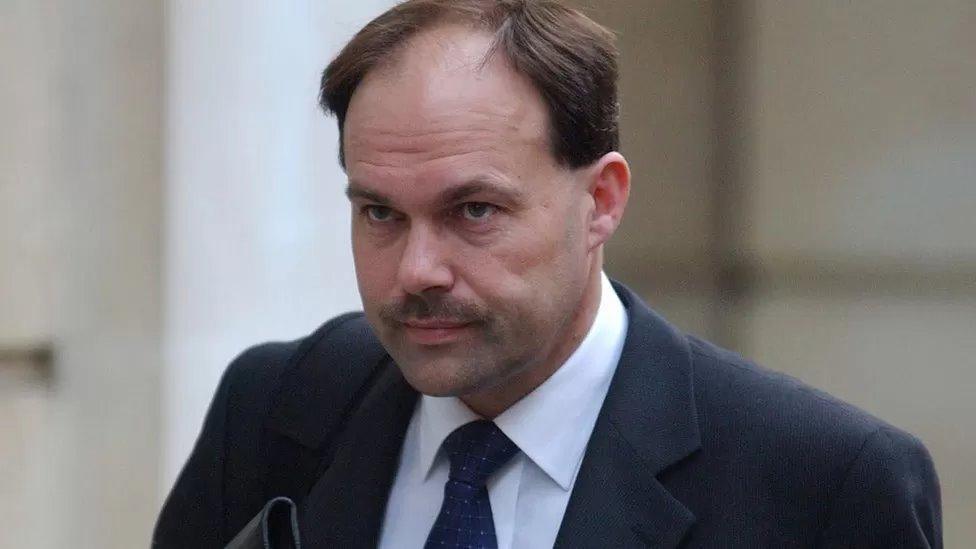
Glyn Razzell was found guilty of his wife's murder at a trial in 2003
On the day of her disappearance Linda's fiancé Greg Worrall was working at the local Honda car factory when he got a phone call to say she had not turned up to collect her two youngest children from an after-school club.
He said: "I said goodbye to her when she dropped me off on her way to work. And then she dropped her kids off at school. And that was that was our goodbye.
"By the end of that year we'd decided to get engaged, I bought an engagement ring and I guess she's still wearing it."
Linda's red car was found in a side street close to where she worked - along with her mobile phone which had been left nearby on the ground.
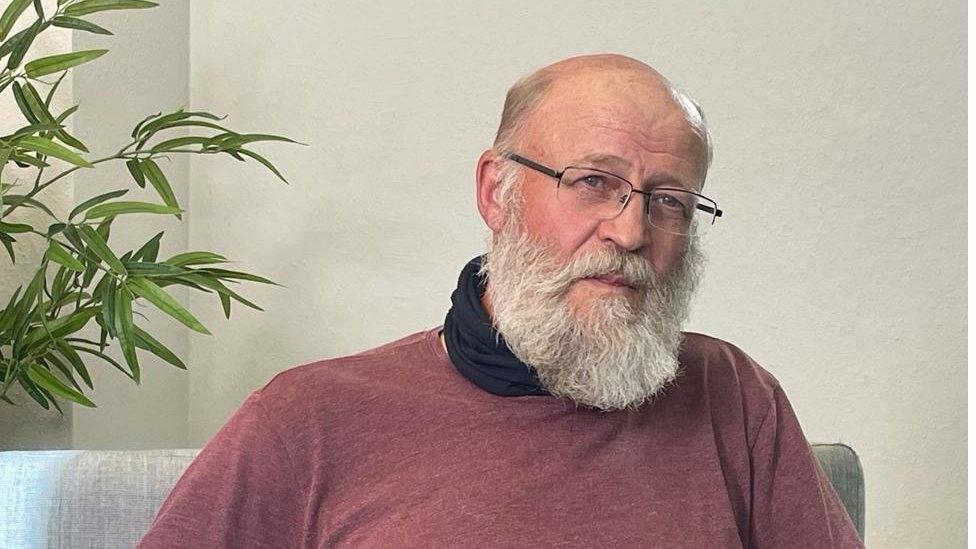
Greg Worrall was Linda's fiancé at the time of her disappearance
For several weeks Wiltshire Police conducted searches and appeals urging anyone who might know what had happened to Linda to come forward.
Razzell and Linda were involved in divorce proceedings at the time of her disappearance.
The week before she went missing she had visited a local bank in Swindon with a court order which froze her husband's accounts.
Razzell has never admitted his guilt, and even helped take part in appeals for Linda to come home.
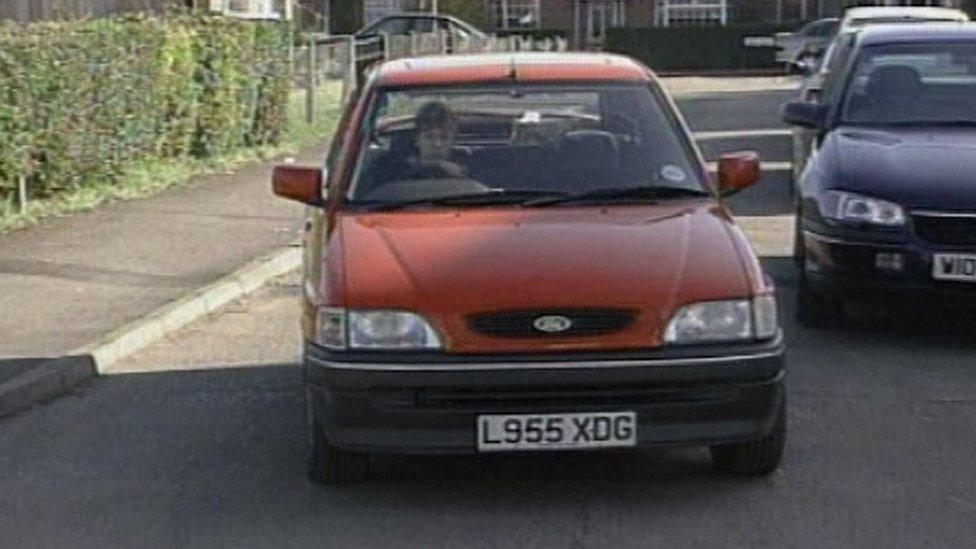
Police used Linda's car as part of a reconstruction hoping to jog people's memories
Two months after Linda's initial disappearance Razzell was arrested and charged with her murder.
He was convicted and sentenced to life in prison and never explained what happened to his wife.
Now, after more than two decades in prison Razzell must, for the first time, face a public parole board hearing which will decide if he can be released from prison.
"I just hope he doesn't think this is a retrial because it's not," said Mr Worrall.
"He's already been tried, found guilty."
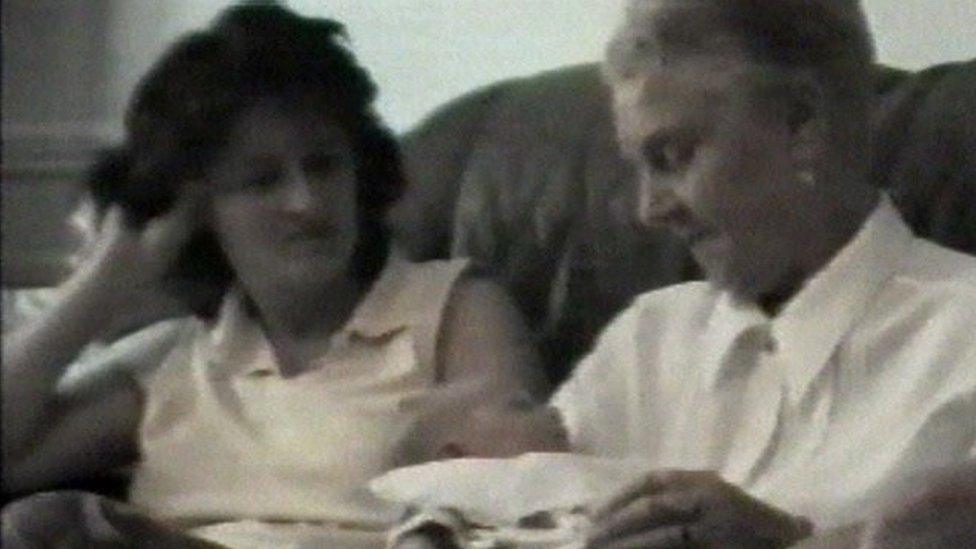
Police released family home video at the time of Linda's disappearance
The hearing will be held at the open prison where Razzell is now serving his sentence, with a live stream to a public gallery in London.
"You won't get very far with a parole panel simply by denying it ever happened," said Martin Jones, chief executive of the Parole Board.
"We have to assume that the trial process and the conviction process is right.
"It's very difficult indeed for a person who's not going to be really open and honest with a parole panel to persuade them that they're safe to be released."

What happens at a parole hearing
Up to three members of a panel will decide whether to release a prisoner based on a file of documents, external the prison puts together, including:
behaviour in prison
what a prisoner plans to do once released
whether they are likely to commit more crime or are a danger to the public
why they are in prison
previous offences
what the judge said when they were sentenced
the victim statement - this may be read at the hearing
medical, psychiatric and psychological evidence


Helen McCourt was murdered by Ian Simms in Billinge, Merseyside, in 1988
Razzell, 63, from Somerset, was refused release from prison at a private hearing in October last year under Helen's Law.
The Prisoners (Disclosure of Information About Victims) Act 2020 was named after insurance clerk Helen McCourt, who vanished on her way home from work in Billinge, Merseyside, in 1988.
Ian Simms, who died recently, was jailed in 1989 for her murder, but never revealed where her body was and was released in 2020.
Her mother, Marie McCourt, spent five years calling for the legislation before it finally gained Royal Assent.
"I can't say I'm proud of Helen's law. I'm proud of Helen's law because of Helen and how many people know about her." said Marie McCourt.
The law will also apply to paedophiles who refuse to identify those they abused.
'Linda's loyalty abused'
Razzell will face a two-day parole hearing, beginning on 24 August.
He is set to join wife-killer Russell Causley and notorious prisoner Charles Bronson as one of the first inmates in UK legal history to have their case heard in public after rules were changed last year in a bid to remove the secrecy around the process.
"She [Linda] was very funny, very so intelligent. Loyal to her children and I think that loyalty was abused by her, I'd like to say ex-husband, because the divorce had virtually gone through," Mr Worrall explained.
"I think if there was any justice, she could actually be awarded a posthumous divorce."

Follow BBC West on Facebook, external, Twitter, external and Instagram, external. Send your story ideas to: bristol@bbc.co.uk , external
Related topics
- Published28 October 2021
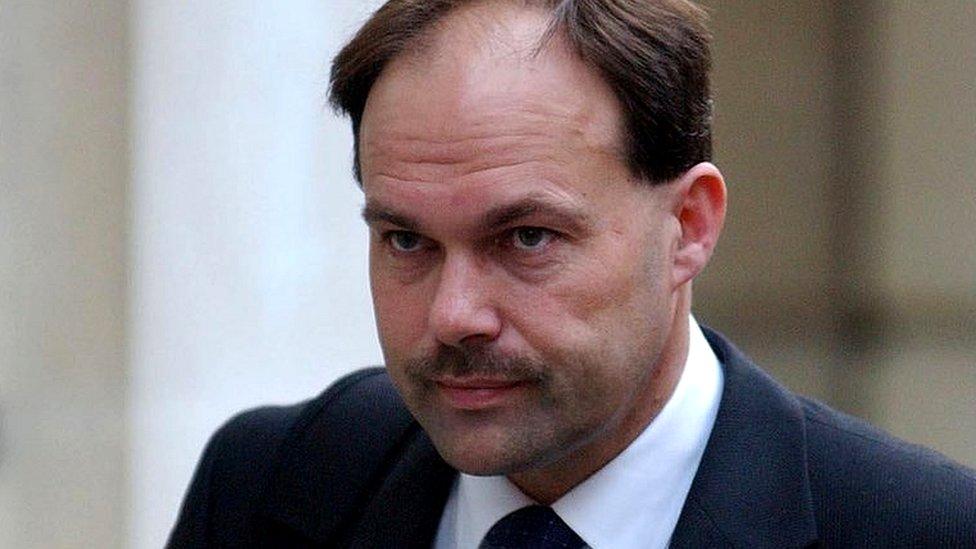
- Published6 February 2020
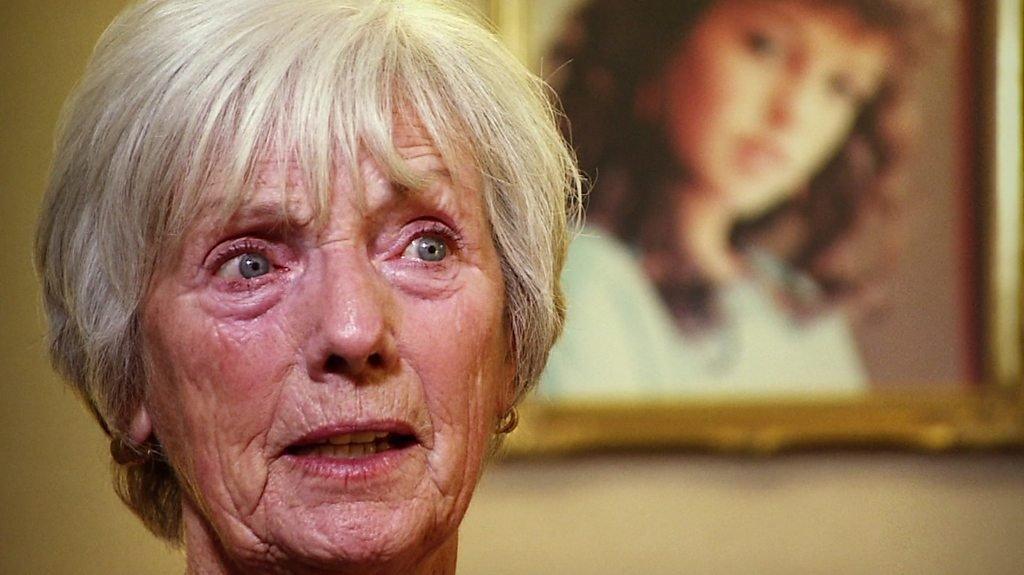
- Published17 May 2019

- Published23 February 2019
